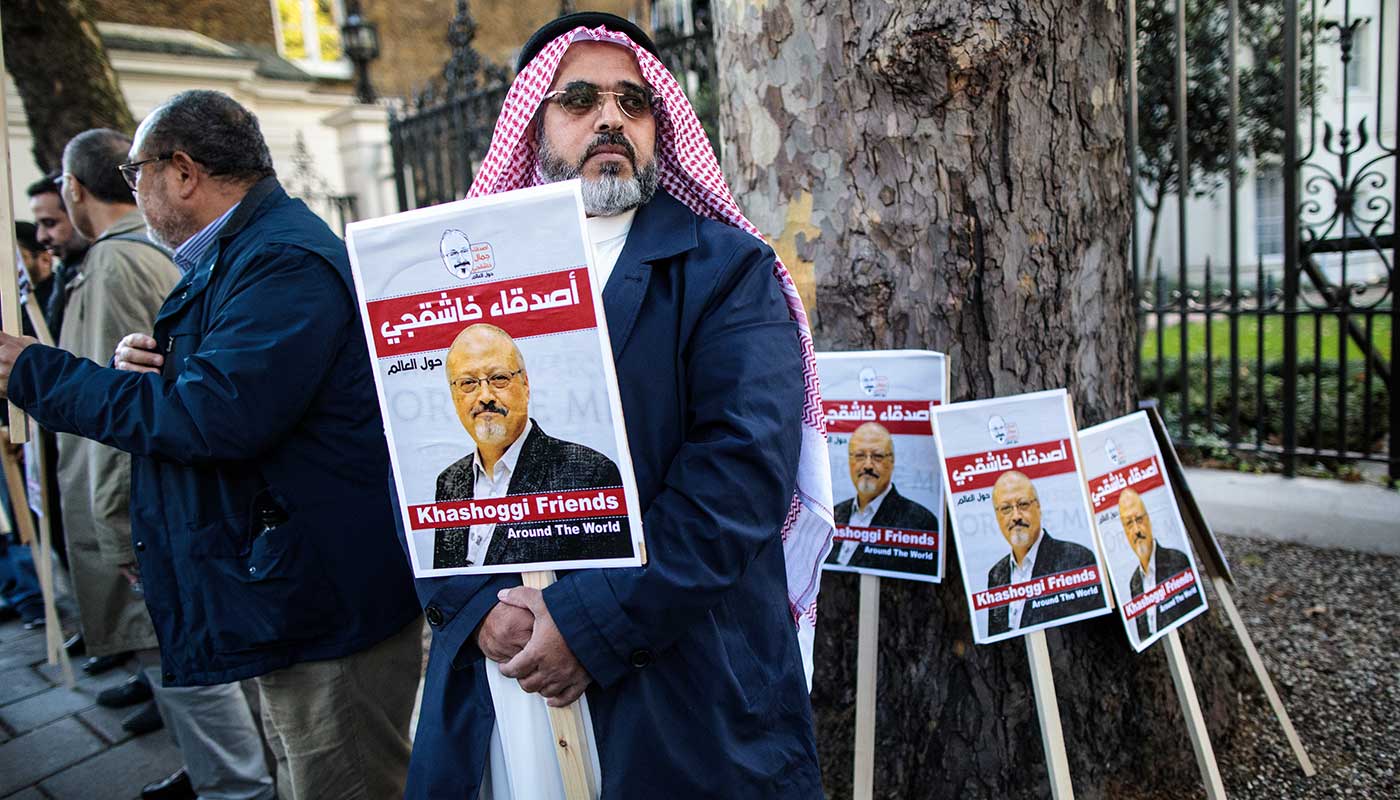Jamal Khashoggi murdered by Saudi state, says UN probe
Prominent critic of Riyadh regime ‘was the victim of a brutal and premeditated killing’

A free daily email with the biggest news stories of the day – and the best features from TheWeek.com
You are now subscribed
Your newsletter sign-up was successful
UN investigators say they have evidence that suggests the death of journalist Jamal Khashoggi inside the kingdom’s Istanbul consulate was “planned and perpetrated by officials of the State of Saudi Arabia”.
In her preliminary report, UN Special Rapporteur Agnes Callamard said that she and her team of three experts “could not firmly establish whether the original intention was to abduct Khashoggi, with his murder planned only in the eventuality of this abduction failing”. But she added that evidence indicates the killing, in October, was premeditated.
The report also claims the Saudi regime “seriously curtailed and undermined” the Turkish investigation into the murder. Turkish authorities were not allowed into the consulate for the first 13 days after the dissident Saudi journalist was killed.
The Week
Escape your echo chamber. Get the facts behind the news, plus analysis from multiple perspectives.

Sign up for The Week's Free Newsletters
From our morning news briefing to a weekly Good News Newsletter, get the best of The Week delivered directly to your inbox.
From our morning news briefing to a weekly Good News Newsletter, get the best of The Week delivered directly to your inbox.
Callamard said that Saudi killers had exploited diplomatic immunity to escape prosecution in Europe for Khashoggi’s death. “Guarantees of immunity were never intended to facilitate the commission of a crime and exonerate its authors of their criminal responsibility or to conceal a violation of the right to life,” she said. “The circumstances of the killing and the response by state representatives in its aftermath may be described as ‘immunity for impunity’.”
The UN team “also attacked Saudi Arabia’s trial of 11 suspects in the case”, saying their prosecution raises “major concerns” about transparency and fairness, reports the BBC.
“I have requested an official country visit to Saudi Arabia so that the authorities there can directly provide me with relevant evidence,” Callamard wrote in her report.
Khashoggi’s killing “provoked widespread revulsion and tarnished the image of Crown Prince Mohammed bin Salman”, who was “previously admired in the West for pushing deep changes including tax reform, infrastructure projects and allowing women to drive”, says Reuters.
A free daily email with the biggest news stories of the day – and the best features from TheWeek.com
The publication of the UN preliminary findings comes as US media reports that the prince, the country’s de-facto leader, had told a senior aide in 2017 that he would go after Khashoggi “with a bullet”.
American intelligence analysts “concluded that Prince Mohammed might not have meant the phrase literally - in other words, he did not necessarily mean to have Khashoggi shot - but more likely he used the phrase as a metaphor to emphasise that he had every intention of killing the journalist if he did not return to Saudi Arabia”, reports The New York Times.
The conversation was intercepted by US intelligence agencies, as part of routine efforts to capture and store the communications of global leaders, including allies, the newspaper adds.
The Saudis have consistently denied that the prince had any involvement in the murder.
-
 ‘Poor time management isn’t just an inconvenience’
‘Poor time management isn’t just an inconvenience’Instant Opinion Opinion, comment and editorials of the day
-
 Bad Bunny’s Super Bowl: A win for unity
Bad Bunny’s Super Bowl: A win for unityFeature The global superstar's halftime show was a celebration for everyone to enjoy
-
 Book reviews: ‘Bonfire of the Murdochs’ and ‘The Typewriter and the Guillotine’
Book reviews: ‘Bonfire of the Murdochs’ and ‘The Typewriter and the Guillotine’Feature New insights into the Murdoch family’s turmoil and a renowned journalist’s time in pre-World War II Paris
-
 Epstein files topple law CEO, roil UK government
Epstein files topple law CEO, roil UK governmentSpeed Read Peter Mandelson, Britain’s former ambassador to the US, is caught up in the scandal
-
 Iran and US prepare to meet after skirmishes
Iran and US prepare to meet after skirmishesSpeed Read The incident comes amid heightened tensions in the Middle East
-
 Israel retrieves final hostage’s body from Gaza
Israel retrieves final hostage’s body from GazaSpeed Read The 24-year-old police officer was killed during the initial Hamas attack
-
 China’s Xi targets top general in growing purge
China’s Xi targets top general in growing purgeSpeed Read Zhang Youxia is being investigated over ‘grave violations’ of the law
-
 Panama and Canada are negotiating over a crucial copper mine
Panama and Canada are negotiating over a crucial copper mineIn the Spotlight Panama is set to make a final decision on the mine this summer
-
 Why Greenland’s natural resources are nearly impossible to mine
Why Greenland’s natural resources are nearly impossible to mineThe Explainer The country’s natural landscape makes the task extremely difficult
-
 Iran cuts internet as protests escalate
Iran cuts internet as protests escalateSpeed Reada Government buildings across the country have been set on fire
-
 US nabs ‘shadow’ tanker claimed by Russia
US nabs ‘shadow’ tanker claimed by RussiaSpeed Read The ship was one of two vessels seized by the US military